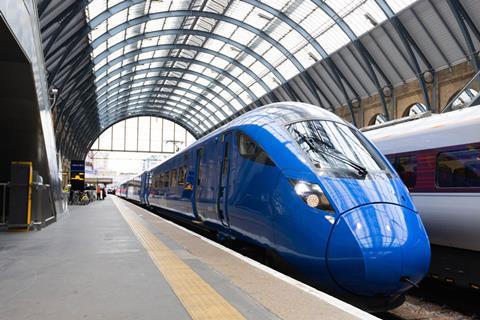
UK: Train operator owning company association Rail Partners said ‘the bar for new open access applications is being made harder to clear’, after Secretary of State for Transport Heidi Alexander set out her expectations for how applications to run open access services should be considered as the rail industry is restructured.
The government’s ongoing rail reform plans will see the operation of contracted services transferred to publicly-owned entities, but open access operators will still be permitted. A number of applications have recently been made to launch new services.
On January 6, Alexander wrote to the industry regular the Office of Rail & Road saying ‘existing and new open access operators can open up new markets, drive innovation and offer choice to passengers. However, there is a balance to be struck to ensure the benefits provided by open access operators outweigh the impacts they have on taxpayers and the ability to operate the network efficiently.’
Alexander wrote ‘we need to be mindful’ of revenue abstraction from contracted services, and the pressures new services can create on network capacity.
She said that while open access operators pay variable access charges to cover the direct costs incurred from their trains, they do not fully cover the costs of long-term network maintenance and central support.
Alexander wants to ensure ‘appropriate balance’, with her priority being ‘to see the network move to a financially sustainable model which maximises benefits and value for passengers and taxpayers while delivering improved performance’. As such, she said the impact on the taxpayer and on overall performance for passengers should be given primacy when ORR considers open access applications.
A more stringent test
Commenting on the letter, Naomi Horton, rail partner at law firm Ashurst, said it ‘signals the requirement for ORR to apply a more stringent test’ for future open access services, in addition to the existing prohibition on services which would primarily abstractive of revenue from contracted services.
Horton said ‘this will be viewed with interest and possible dismay by private sector transport operators keen to continue running rail services, since, following the passing of the Passenger Railway Services (Public Ownership) Act, this is the only way they can continue their passenger rail businesses’.
Rail Partners Chief Executive Andy Bagnall believed that the Secretary of State’s letter ‘is a worrying signal as it suggests that the bar for new open access applications is being made harder to clear. Open access operators are at a crossroads and the government needs to clarify whether it will champion new open access services as part of its nationalised system or allow Great British Railways to slowly suffocate the existing operators by failing to create the right safeguards.’
A spokesperson for FirstGroup, which owns open access operators Hull Trains and Lumo and has announced plans for further services, told Rail Business UK that ‘open access operators have led the way in increasing passenger numbers following the pandemic, helping grow passenger journeys for all train operators on the routes they serve.
‘ORR plays an important role in assessing open access applications to ensure that these do not affect taxpayer revenue nor network capacity, and we are confident that our First Rail applications will have beneficial effects on the routes where they will be introduced.’



